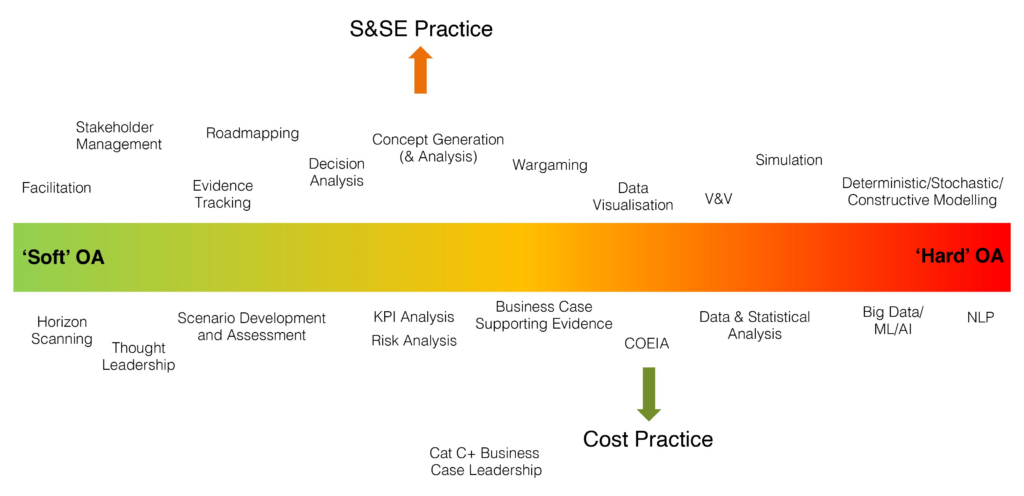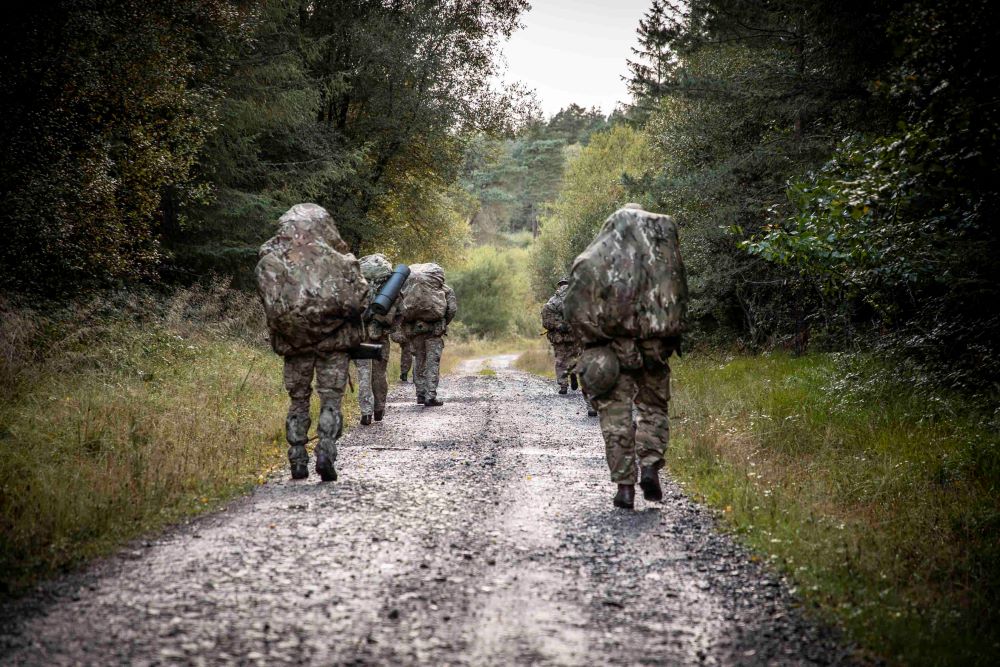Analysis and Approvals
Our Analysis and Approvals practice is a team of ex-military and domain experts, providing evidence-based decision support for Defence S&T. From analysis to business cases, we guide customers to help make informed decisions.
The Analysis and Approvals practice is at the forefront of TP Group's science and technology backbone within Defence. This team comprises a multidisciplinary group of domain leading experts including ex-military SMEs, modelling specialists, data analysts and Cat A Business Case professionals that span the entire OA spectrum.
Together they bring together a wealth of knowledge, experience and a range of industry recognised analytical tools and methods to generate the underpinning evidence required to make informed decisions and navigate the complex Defence environment.


Services
- Facilitation and requirements definition via workshops and stakeholder engagement to ensure buy in and shape projects.
- Horizon scanning and roadmapping to analyse future technology and its utility to Defence.
- Generate and analyse options for new and/or modified systems/services, providing robust and holistic evidence to justify option down-select.
- Generates and assesses cost, time, performance and risk data – identifying cost drivers and potential savings.
- Provides robust evidence in support of business cases (including JSP655).
- Wargaming and Table Top Exercises to test potential concepts and evaluate the outcomes of operational scenarios.
- Development of concept of analysis (COA), combined operational effectiveness and investment appraisal (COEIA) and operational analysis supporting paper (OASP).
- Supports investment appraisal, balance of investment and Value for Money decisions.
- Development of modelling tools using R, Python, VBA, Excel, Simul8 etc to support evidence based decision making.
- Produce a benefits led, evidence based business case to secure approvals for implementation of enterprise change.
- Provides robust, holistic evidence (strategic, technical, financial, commercial, economic and management) in support of business cases.
- Uses model based analysis, including multi-criteria decision analysis (MCDA); whole-life costing (WLC); cost benefit analysis (CBA); combined operational effectiveness and investment appraisal (COEIA).
- Liaising with the Scrutiny community to ensure all expected elements are covered.
- Generate Invitation to Tender/Negotiation (ITT/N) documentation.
- Develops full output based specification from justified, validated, de-conflicted and traceable requirements.
- Generates robust evaluation criteria and evidenced and auditable decision log.
- Undertake thorough, objective and independent evaluation of supplier and tender responses.
- Conduct supplier negotiations.
- Provide embedded support to hold supplier to account.
Why TP Group?
- More than 30 years' experience in the Defence sector
- Proven track record on major government projects across UK Defence
- Dedicated team of Analysis & Approvals professionals numbering more than 15
- Straightforward to engage through multiple frameworks
- Independent consultancy not affiliated to any software or technology
Our work in Analysis and Approvals
Map the Gap (MtG) is a Capability Concept Demonstrator under Land Concepts, designed to improve the ability of Royal Engineer recce elements to conduct gap surveys by using robotic autonomous systems.
Development a campaign-level assessment framework for the Maritime Operations Centre.
Dstl commissioned ASTRID 263 to develop an enhanced Air Expendable Countermeasure Stockpile Calculation Tool, this update has been led by TP Group.
The purpose of ASTRID 283 was to provide a framework for Dstl to evaluate whether Bright Corvus sensors are expendable or not.
